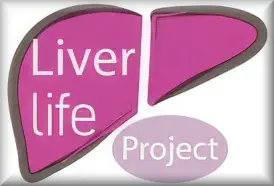



Welcome to our website
The need for change is now here.
The label “Alcoholic” is outdated, inflammatory, and just stigmatises someone.
The phrase “Alcohol Use Disorder” (AUD) is a medical condition, not a label.
Alcohol use disorder (AUD) is a medical condition characterised by an impaired ability to stop or control alcohol use despite adverse social, occupational, or health
consequences. It encompasses the conditions that some people refer to as alcohol abuse, alcohol dependence, alcohol addiction, and the colloquial term, alcoholism.
It is reckoned that 82% of people who go on to develop a serious Liver-related medical condition due to drinking alcohol, drink because they choose to.
They may well have an alcohol problem, but they’re not addicted.
The remaining 18% are now drinking because they have to; they are the ones who now have an alcohol addiction problem.
The label “Alcoholic” is often seen and felt like an invisible badge of shame.
(You are a low-life, a waste of space, a lost cause) But this can all change.
Understanding and treating the person and not just their medical condition is paramount for
their successful recovery. Behind everyone with an AUD is a story waiting to be shared


This site is for information only. It’s not for profit but aims purely to raise awareness of these associated medical conditions and offer
support where possible for Alcohol-related Liver Disease. It was never my intention to breach any copyright infringement, but to only use
pictures and digital media to illustrate certain points. After all, a picture is worth a thousand words, and clarity is so important.
Talking from an empathetic view point
There’s nothing broken that can’t be fixed
There
are
a
few
things
that
need
to
be
realised
before
anything
can
change
in
a
person’s
alcohol
journey.
Firstly,
there
needs
to
be
that
“
wake-up
call
”
moment.
This
is
when
a
person
has
that
all-important
reality
check
and
confronts
those
inner
demons.
“How
did
it
come
to
this?”
Secondly,
Partners,
Spouses
and
loved
ones
can
all
play
a
part
in
this
by
showing
their
support
and
willingness
to
share
in
the
recovery
journey.
“This
is
what’s
broken.
Now,
what
are
WE
going
to
do
to
make
things
right?”
The
decisions
a
person
makes
today
will
bring
about
those
all-important life changes tomorrow, but the need to bring about change has to come from within.
Guilt and blame will only compound the problem. Understanding and compassion are what is needed.
It can be done, but that strong determination needs to be there in order for this to succeed.












































